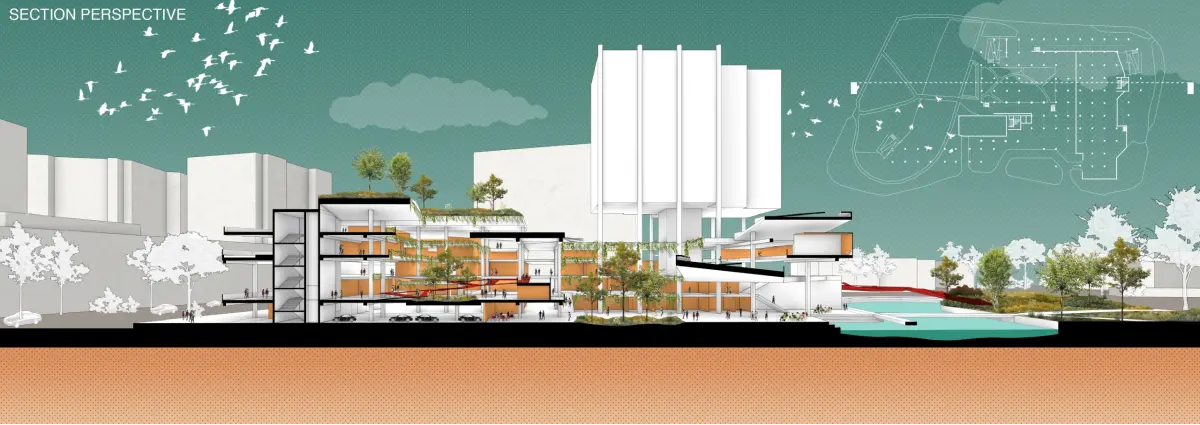
Renewing Adaptive Reuse
BY Lin Haozhen
SUPERVISED BY Asst. Prof. Zhang Ye (Dr.)
STUDIO THEME ARCHITECTURE OF THE SHARING CULTURE
Abstract
Adaptive reuse is widely accepted by governments as being instrumental in urban regeneration. However, in the context of Singapore, market-oriented approaches often impose constraints on adaptive reuse, preventing it from realising the economic and social values it promises.
This thesis attempts to overcome the constraints with a new model of adaptive reuse leveraging on private-public partnership. Two old shopping malls are chosen to demonstrate the process of this new model which involves adaptively reusing one of the shopping malls to bring about incremental adaptation of the other in carefully managed phases. Successful application of the new model would result in new economic vitality and regenerated public space integrated with commercial activities. With the new model, adaptive reuse could become a more favourable option to private developers and an important step towards public empowerment.
Supervisor Comments
Adaptive reuse is not unfamiliar to the profession and also the students. However, would adaptive reuse take a different form if it is based on the public-private partnership? If so, what are the potential benefits and added values? How to implement it, taking into account a variety of complex factors? The series of questions suggest an uncharted field of urbanism, especially for high-density cities, and this is exactly what Hao Zhen’s endeavour lands on. Far more than a conceptual proposal, the new model of adaptive reuse is substantiated with concrete facts and thorough calibrations.
- Asst. Prof. Zhang Ye (Dr.)